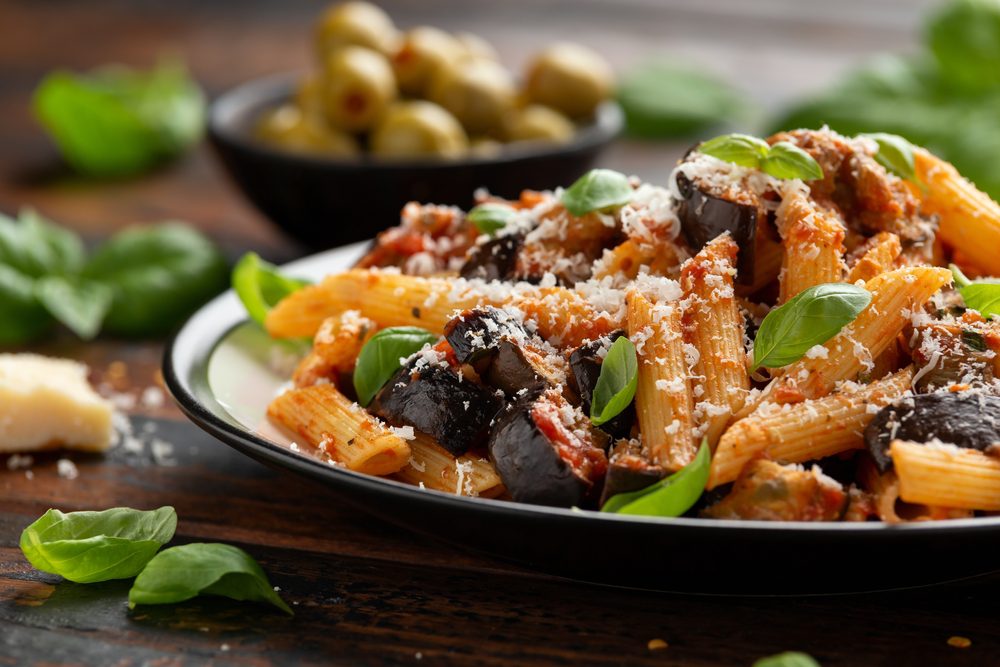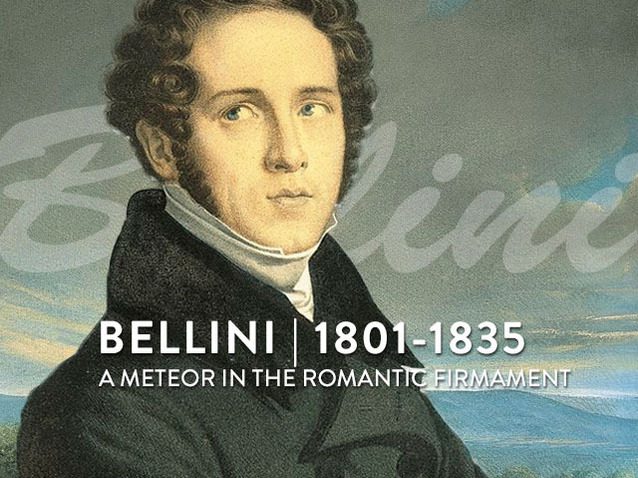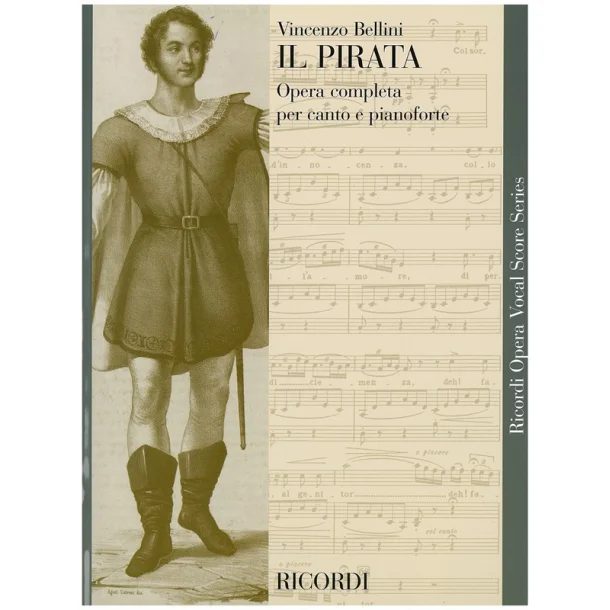Vincenzo Bellini and Pasta Alla Norma
Vincenzo Bellini
Vincenzo Bellini, (born November 3, 1801, Catania, Sicily [Italy]—died September 23, 1835, Puteaux, near Paris, France), Italian operatic composer with a gift for creating vocal melody at once pure in style and sensuous in expression. His influence is reflected not only in later operatic compositions, including the early works of Richard Wagner, but also in the instrumental music of Chopin and Liszt.
What does Bellini have to do with pasta?
Eggplant, tomatoes, basil, and ricotta salata – these four ingredients are the fundamentals of Pasta Alla Norma, a dish that originated in Catania, a city on Sicily’s west coast.
So, who’s Norma? It’s said that Catanese composer, playwright, and poet Nino Martoglio (1870 -1921) was so impressed by the pasta that he called it Norma after fellow Catania native Vincenzo Bellini’s opera. Legend says that Martoglio exclaimed, “Chista è ‘na vera Norma!” (This is a true Norma!)

The story of Bellini
Vincenzo Salvatore Carmelo Francesco Bellini was born in the city of Catania, Sicily in what was then the Kingdom of the Two Sicilies on November 3rd, 1801. A child prodigy from a family of musicians, legend has it that Bellini could sing an aria of Valentino Fioravanti at the tender age of only 18 months. His father schooled the boy in piano lessons, and by the age of five he could play quite well. At the age of six he composed his first piece, Gallus cantavit, and subsequently began studying composition with his grandfather.
By the time he reached his teens, Bellini had composed parti sacre which was being heard in churches throughout Catania while his ariettas and instrumental works were being played in the salons of Sicilian aristocrats and patricians. Having learned all he could from his grandfather, in June of 1819 he left Sicily to study at the Conservatory in Naples. By 1822 he was in the class of the director, Nicoló Zingarelli. Here he wrote his first opera semiseria, Adelson e Salvini which was produced in 1825. Its success led to a commission from the Teatro San Carlo. It was here he produced his next opera, Bianca e Gernando, whose success garnered him a commission from the impresario Barbaia to produce an opera at the prestigious La Scala in Milan.
Il pirata (1827), written for La Scala, the opera house at Milan, earned him an international reputation. Bellini was fortunate in having as librettist the best Italian theatre poet of the day, Felice Romani, with whom he collaborated in his next six operas.
1831 saw Bellini produce two of the three operas considered his greatest works: La Sonnambula and Norma; the last universally considered both his greatest work and the finest example of the Bel canto tradition of opera ever composed. His fame as an opera composer was now on an international scale.
Bellini in his later years
It was this opera, Il pirata, that put Bellini “on the map”, so to speak, of musical composers. It was such a resounding success, it, and the works to follow, guaranteed that Bellini would be able to live the grand lifestyle he so desired solely from his opera commissions. It also began his long and fruitful collaboration with librettist and poet Felice Romani, as well as cementing his friendship with the famous Lombardian tenor Giovanni Battista Rubini. Rubini, Bellini’s favored tenor, had earlier sung in Bianca e Gernando.
Between the years 1827 and 1833 Bellini lived mostly in the city of Milan. It was during this time his creative genius was in high gear. In 1829 he composed La straniera, which was even more successful than Il pirata. However, his other opera, Zaira, composed that same year, was considered a failure. He regained his momentum the following year in Venice with his production of I Capuleti e I Montecchi , an opera based on the same sources William Shakespeare used to write Romeo and Juliet.
1831 saw Bellini produce two of the three operas considered his greatest works: La Sonnambula and Norma; the last universally considered both his greatest work and the finest example of the Bel canto tradition of opera ever composed. His fame as an opera composer was now on an international scale.
“You are a genius, Bellini, but you will pay for your great gift with a premature death. All the great geniuses die young, like Raphael and like Mozart.” – Heinrich Heine: to Bellini, at a dinner party, 1835.
With those unintentionally prophetic words, the German-Jewish poet Heine (who was never known for his tact or his couth) cursed Bellini to an early grave. Scarcely several months after hearing these words, Bellini would sadly prove Heine correct by joining Raphael and Mozart among the greats who died too young.
When in Catania don’t miss…
A fine public space for relaxation and enjoying nature, the Giardini Bellini and the Parco Maestranze are located to the west of the Piazza Carlo Alberto in the town center. The Bellini garden is located at the east side of the park and contains a beautiful fountain and several flower beds. Furthermore there is an ornate bandstand and many varieties of tree. Aside from the Giardini Bellini, the Maestranze Park features a series of shaded walking trails covered by luscious forest.
Considered one of Italy’s most magnificent opera houses, the grand Teatro Massimo Bellini dazzles with its imposing Sicilian baroque-style façade and opulent interiors. Admire its fin de siècle beauty during an opera or concert in the evening, or join a tour during the day to see its ornate marble foyer and 19th-century boxes.





Leave a Reply
Want to join the discussion?Feel free to contribute!